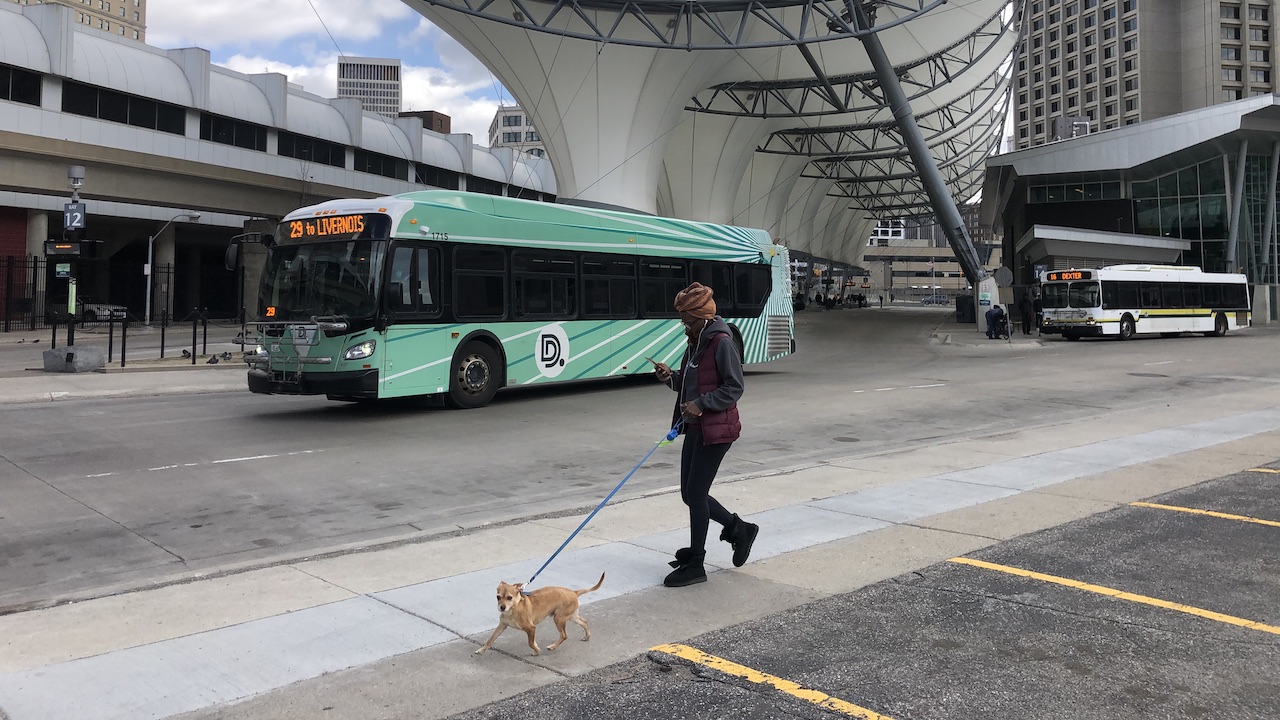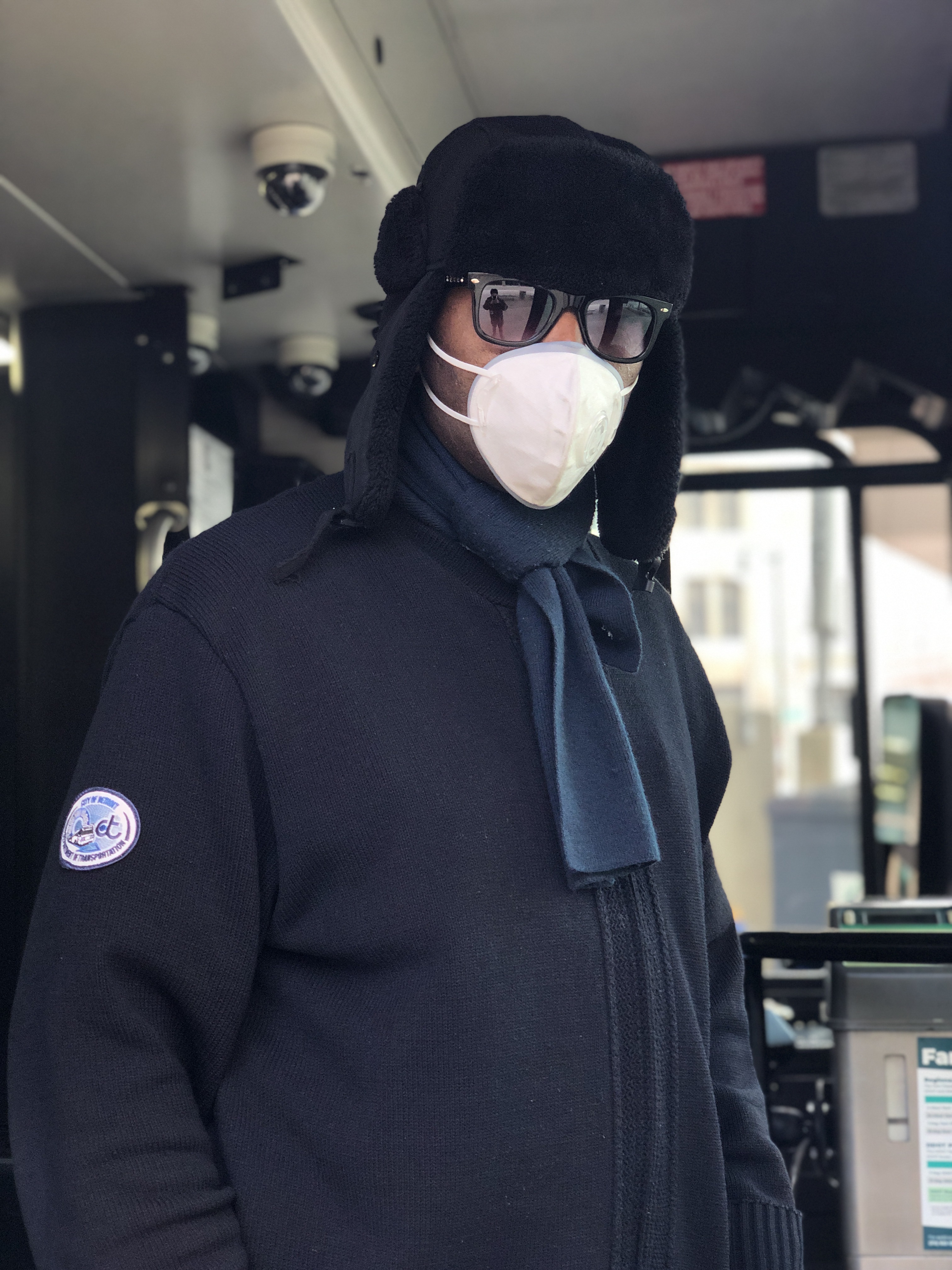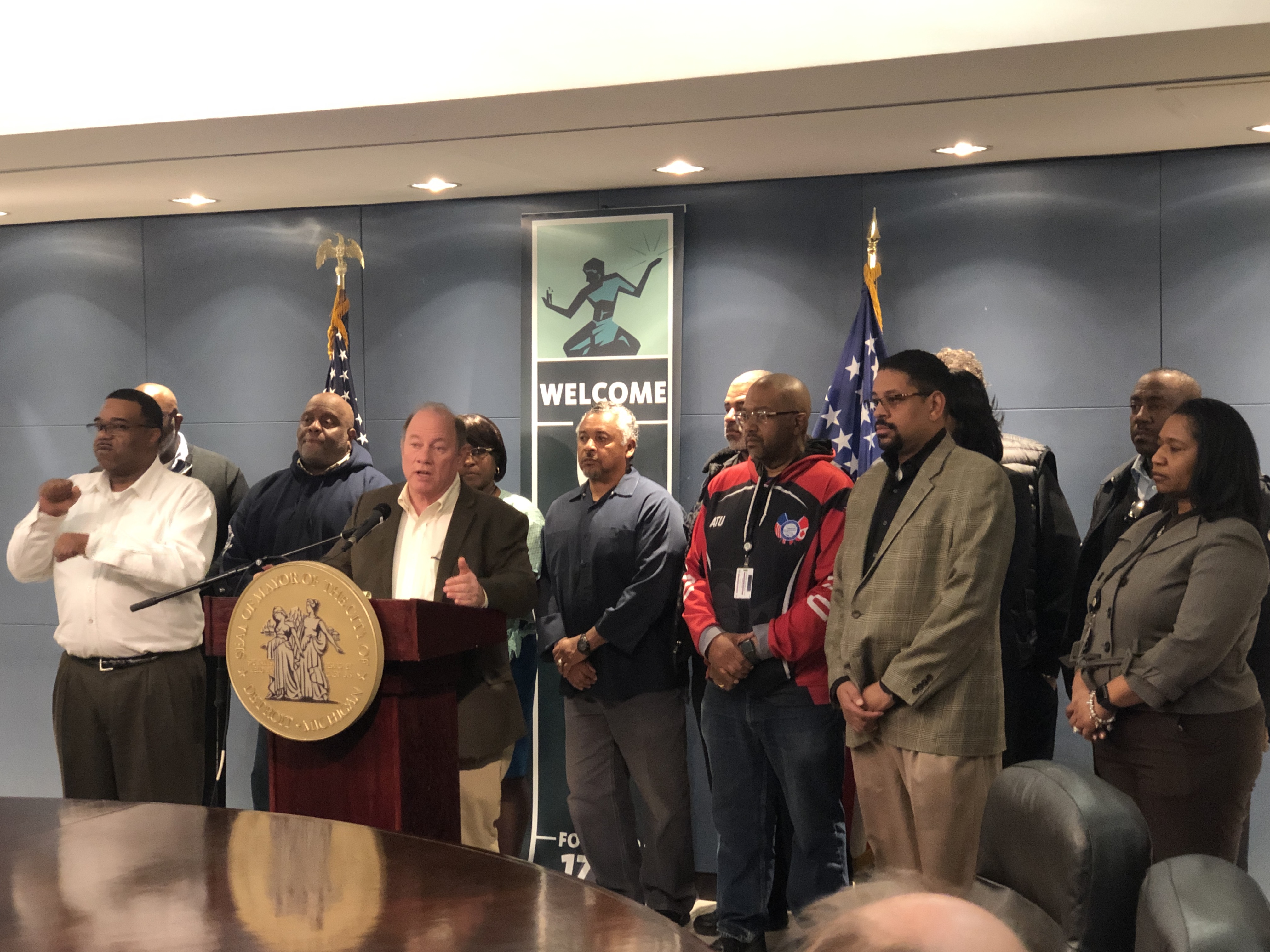Despite Pandemic, Detroit’s Bus Drivers Keep Moving the Motor City
Bus service is now free for residents, but some drivers are concerned for their health. Many have come down with COVID-19 and one bus driver died of the disease.


Mark Rains waits for the bus at the Rosa Parks Transit Center as an empty carriage of the Detroit People Mover passes overhead.
It’s a cold Sunday afternoon in March and the city’s COVID-19 outbreak has stopped most activity downtown. But there’s still plenty of coaches coming and going. Rains has been taking the bus a lot these days.
“I’ve been on the Fort Street, the Dexter, the Hamilton,” Rains says, listing the lines he has traveled. “I’ve been on Grand River, I’ve been on the Vernor, the Michigan.”
Detroit’s buses are critical to many people who don’t have cars and the city will likely continue bus service through the pandemic. Michigan has a “Stay At Home” order, but people still need to get to the grocery store and essential workers still need to travel to their jobs, causing tension within city government and drivers who want to stay healthy.
But there’s plenty of people milling about the transit center. Nearly everyone is standing apart from each other, some wearing masks, others gloves.
“People like me, I don’t have a ride. Transportation means the world to me.” — Mark Rains, resident
Rains, who is experiencing homelessness, is glad he can still ride the bus. The 47-year-old lifelong Detroiter’s white hands are covered with black soot and tattoos. He does demolition work, paid in cash from a contractor to gut the insides of one of the many vacant homes in the city. That work has slowed down significantly since the outbreak, but Rains is still busy.
“A lot of times, I go to a place to get food or go to my doctor’s appointment because I’m trying to get disability,” Rains says. “People like me, I don’t have a ride. Transportation means the world to me.”
Serving Detroit
Bus service is now free for residents after a driver protest.
On the the morning of March 17th, many employees with the Detroit Department of Transportation called in sick and forced the whole system to shut down. Detroit increased its cleaning to resolve the one-day strike. And buses are now free to ride during the outbreak, so passengers won’t come close to drivers at the farebox.
The city expects to lose $450,000 a week as a result.
“This is death walking around out here! And nobody’s taking it serious. And I think that is unfortunate.” — Roderick Nash, driver
But that means, for many bus drivers, the end of the line is cleaning time. At the transit center, a small crew equipped with disinfectant spray jump on to the coaches to wipe down the steering wheels and handrails inside.
Roderick Nash is waiting for his bus to be cleaned. He says coronavirus has put his job on the frontlines.
“Unfortunately, I have a job that’s in the service industry, and I must serve the citizens of Detroit,” Nash says through an N95 respirator mask. “This is death walking around out here! And nobody’s taking it serious. And I think that is unfortunate.”
Nash later stopped driving and self-quarantined. He has asthma and worries about catching COVID-19. Other bus drivers say they felt that the city was not doing enough to protect them from the disease.
“I Feel Violated”

“We need to be safe, not to take it home to our families, not to give it to the public,” said Glenn Tolbert, the president of the Amalgamated Transit Union, Local 26, following the strike. “We needed the buses cleaned.”
Tolbert later tested positive for COVID-19 himself.
“I feel violated. I feel violated for the folks that were on the bus when this happened.” — Jason Hargrove, deceased driver
DDOT estimates ridership is down more than 60% from the usual 85,000 riders a day. And the closure of many businesses created another problem.
“Our drivers use bathrooms and wash their hands at the end of routes at many of these restaurants, and found themselves locked out,” Mayor Mike Duggan told reporters in March.
Now, Duggan says portable toilets are available at some stops. And Greektown Casino is letting bus drivers and other essential city workers sleep in its hotel for free, so they can prevent spreading the disease to their families at home. Surgical masks are being passed out to passengers.
But for one bus driver, some of these changes came too late.
Jason Hargrove posted a video on Facebook about a woman he said was openly coughing on the bus he was driving.
“I feel violated,” Hargrove said in the video. “I feel violated for the folks that were on the bus when this happened.”
He died from COVID-19 two weeks later.
Trusted, accurate, up-to-date
WDET is here to keep you informed on essential information, news and resources related to COVID-19.
This is a stressful, insecure time for many. So it’s more important than ever for you, our listeners and readers, who are able to donate to keep supporting WDET’s mission. Please make a gift today.

